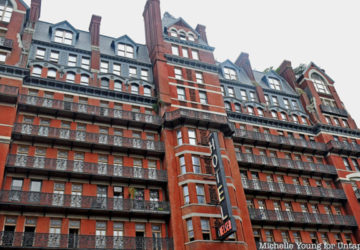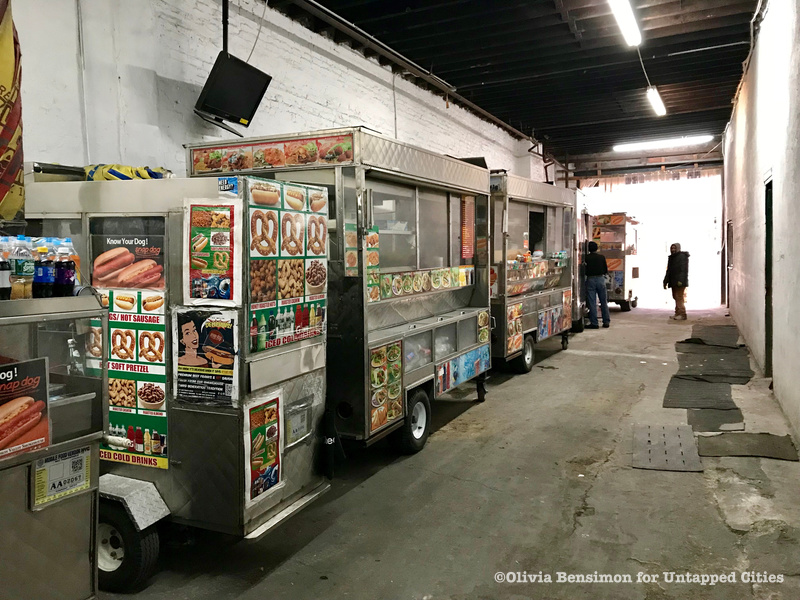
On a daily basis, we pass by food carts parked near by apartment buildings, work offices and popular subway stations. In fact, New Yorkers coexist with them — and some of us may even be on friendly terms with their owners. After all, they are present on the curbside all day, almost every day. Yet, we don’t know their stories: what happens at night to the food carts that populate the streets? Do they follow their owners home? Do they keep the same spot warm overnight until the next day?
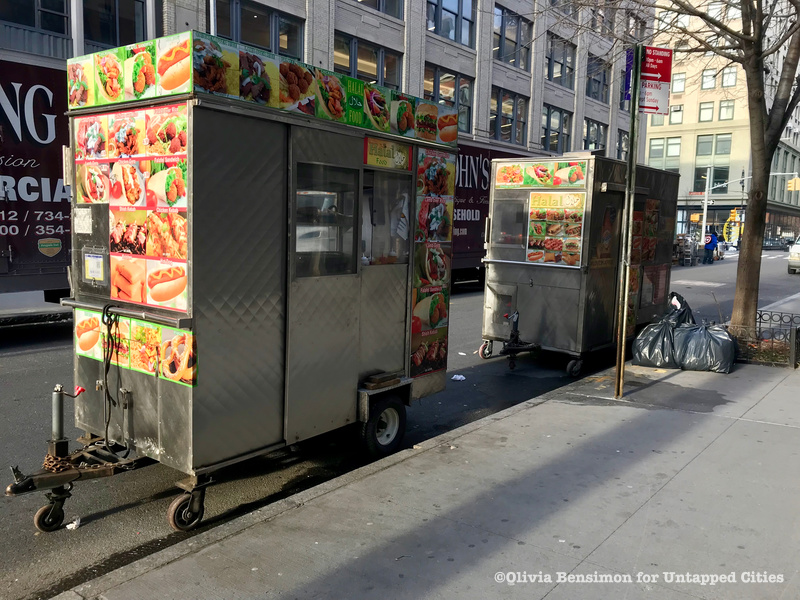
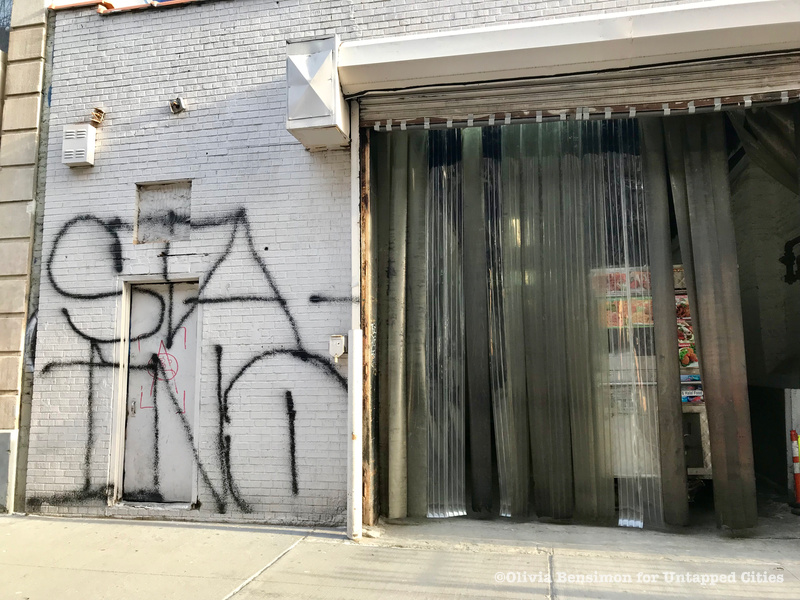
As we briefly mentioned in a previous post, many carts spend the night at commissaries or depots licensed by the NYC Department of Health and Mental Hygiene. This is because vendors are not allowed to store their units at home. New York City government requires that all units be stored at approved commissaries where the carts can be cleaned thoroughly, tanks can be refilled and food can be stored and prepared for the next day.
Recently, we had a chance to take look inside one, located on 27 East 4th Street in the East Village next to the Merchant’s House Museum. Here’s a peek:
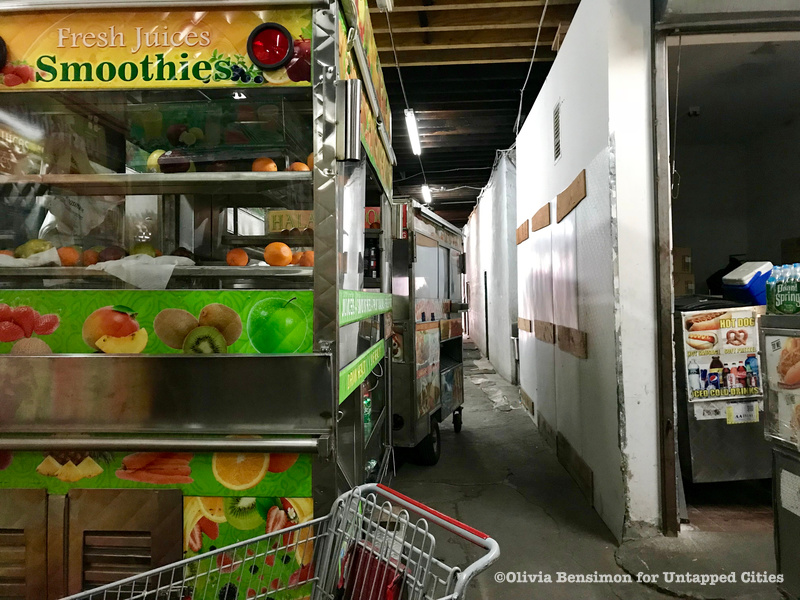
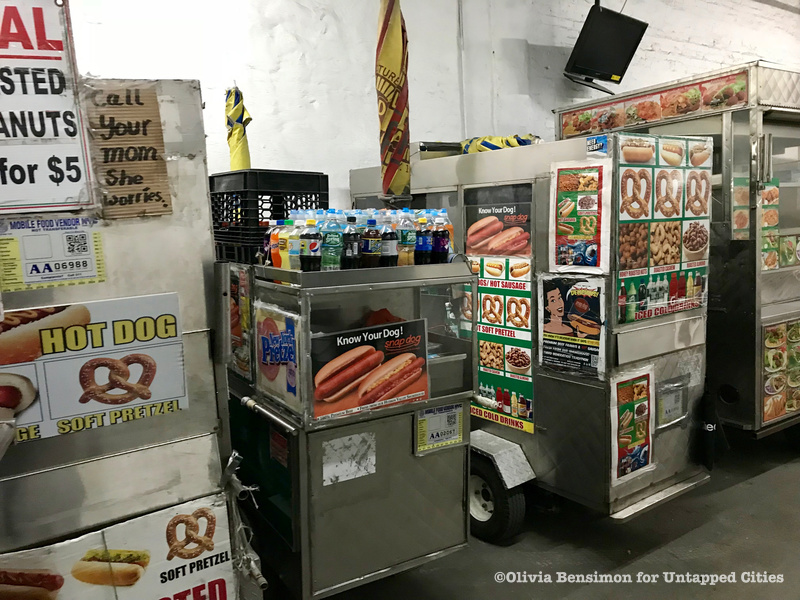
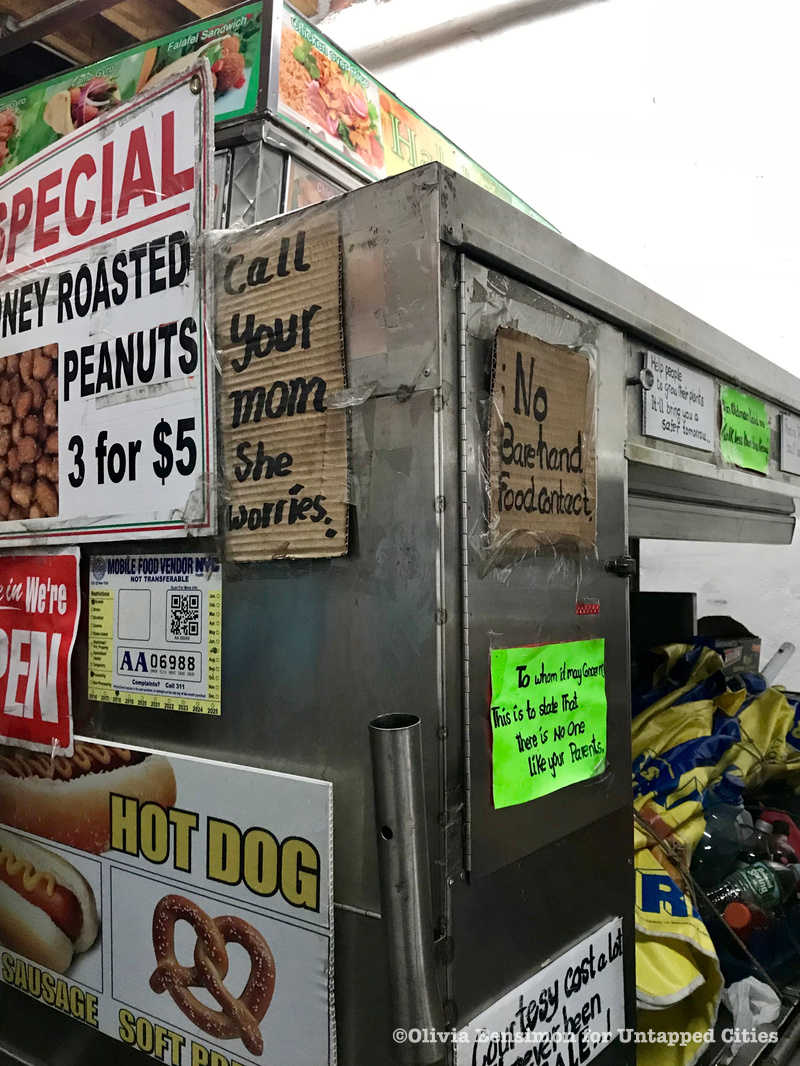
According to the NYC Department of Health guidelines for mobile vendors, all commissaries should:
- have cleaning and sanitizing equipment, including sinks and potable water
- have separate and enclosed areas for washing mobile food vending units
- have equipment for waste disposal
- have food preparation areas and supplies
- have equipment for food and propane storage
- keep daily logs of vendor use that must include the date and time the facilities were used and for what purpose
The rate for a monthly spot is around $250 to $300, reports New York Magazine, and carts are transported to and from these garages by van, flatbed truck or by hand with the help of a small motor. The food must also be prepared at the commissary using the in-house supplies.
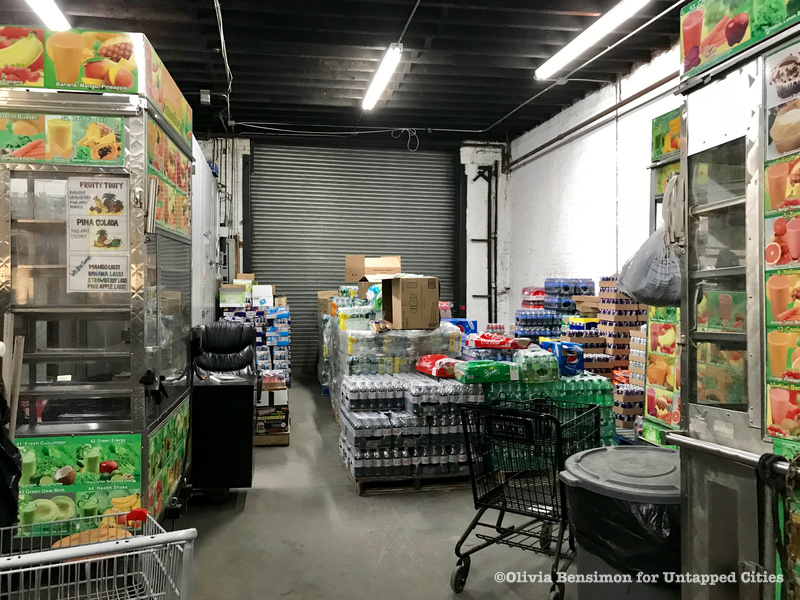
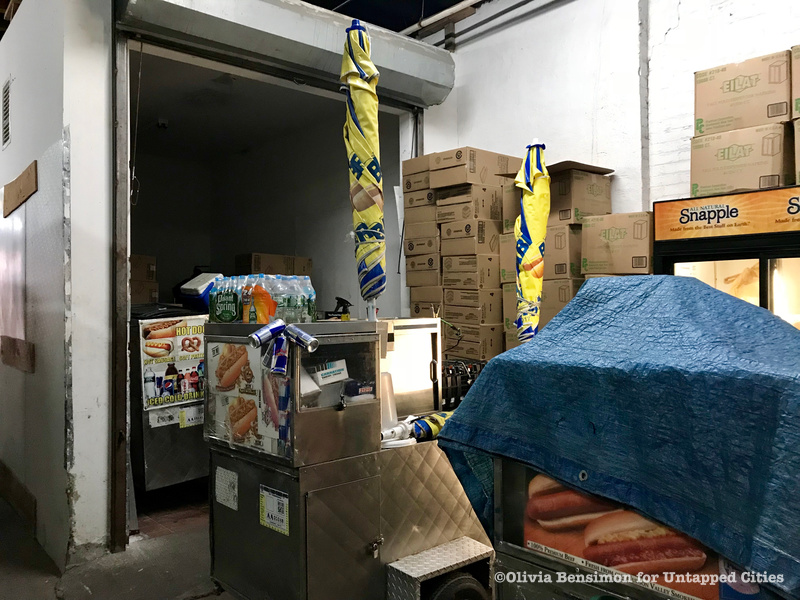
Whereas a commissary can store the vending units and the food, depots can only store the units themselves. Fruit and vegetable carts (“Green carts”) and ones that sell only prepackaged foods may park in alternative storage facilities (ex: a private garage), as long as they are approved by the Health Department.
Although we were only able to get a peek inside this East Village commissary, there’s a long list of licensed ones located across the five boroughs. NYmag does mention that many are congregated on the western edge of Midtown. Even so, we probably walk pass them unknowingly on a daily basis, so make sure to keep your eyes peeled if you want to spot one.
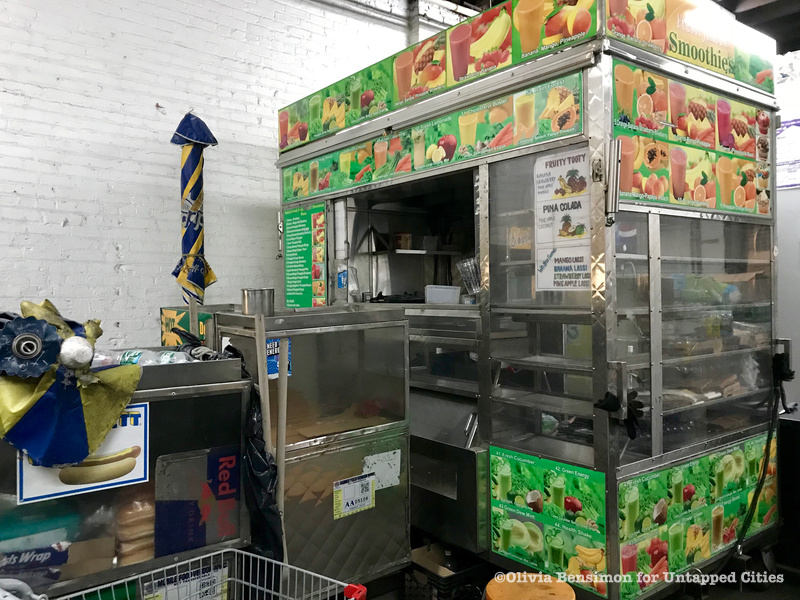
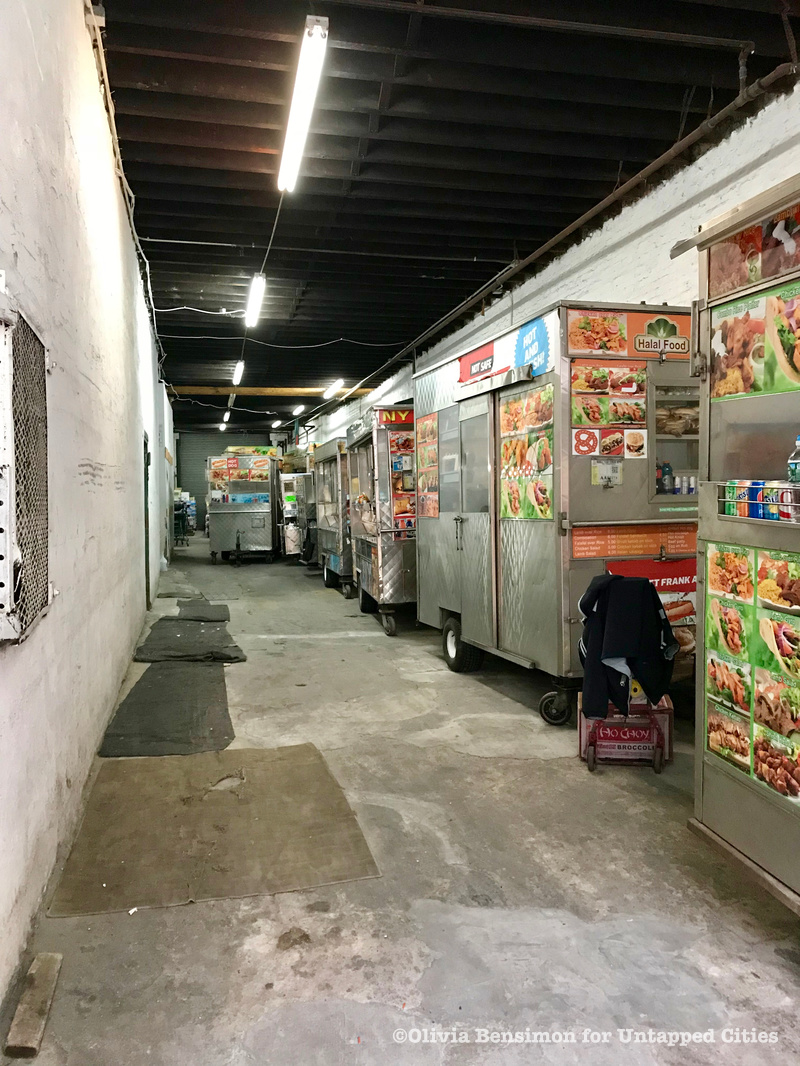
Next, read about what it takes to become a food vendor and see where NYC’s other wheels sleep at night.



